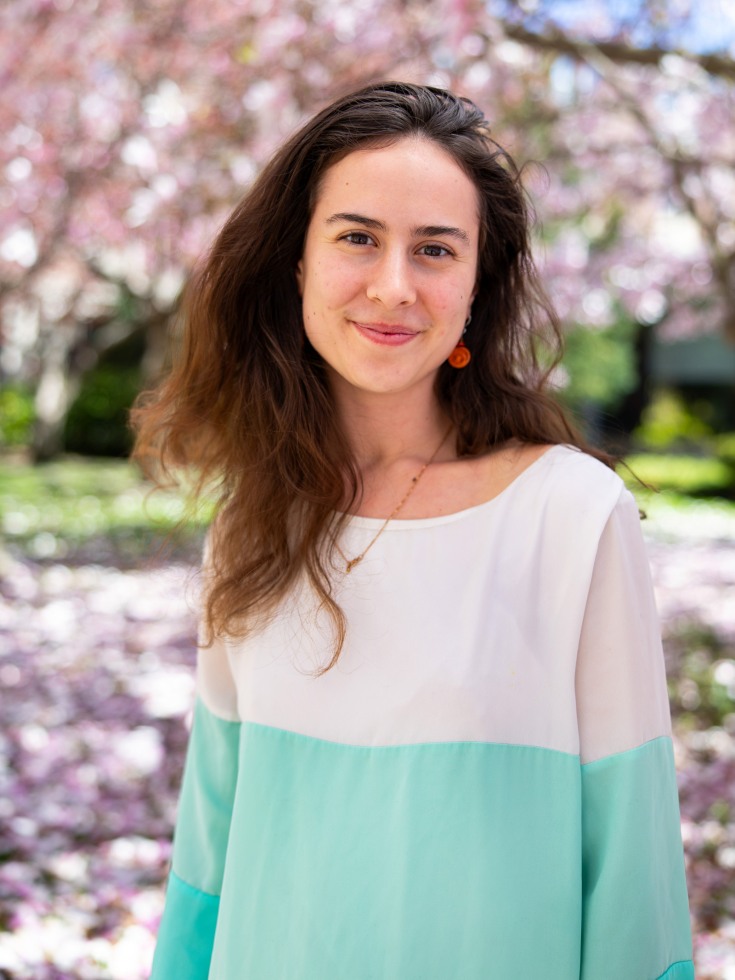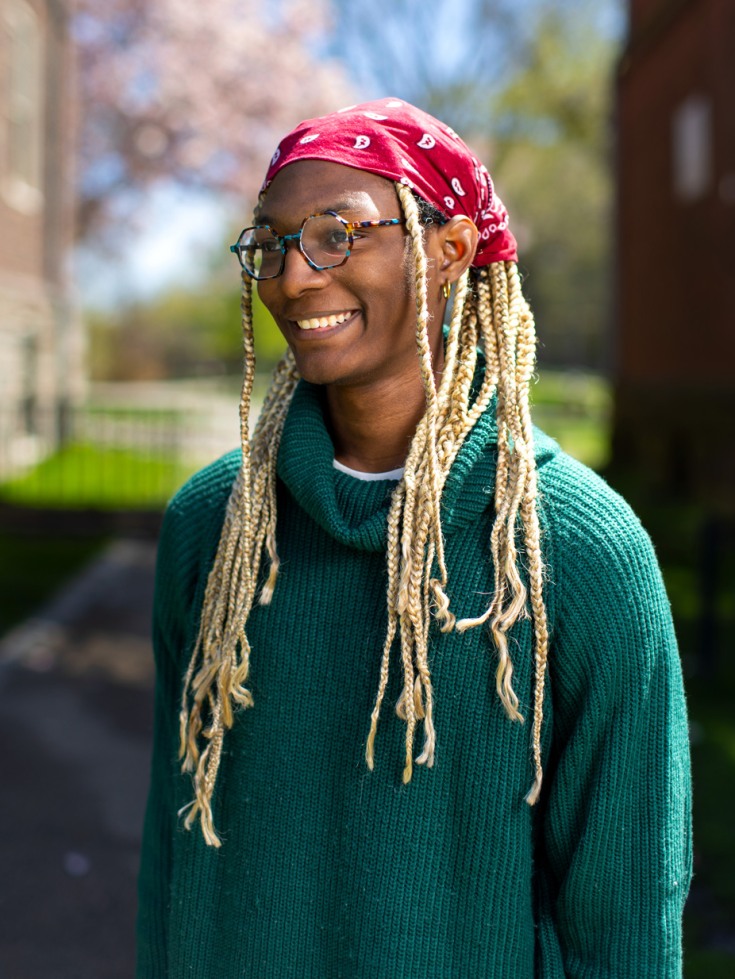“Writing about hummus became my way in, as an American Jew who had struggled with the issues of Israel and Palestine growing up, to figuring out how I could participate in creating justice,” Buxbaum said.
She traveled to Jerusalem and the West Bank in the summer of 2022 to conduct research for the play and was inspired by the stories she heard from people she met, including a woman who struggled with a decision to move to Gaza for love and a Palestinian food tour guide who said he “really believed that the play could be important.” The three-week trip, she said, was a profoundly emotional experience that confirmed her passion for using theater as a catalyst for conversation about even the most contentious topics.
“The process of collecting experiences and stories and collaborating with Israelis and Palestinians was very beautiful, and I learned a lot about how to develop one of my main characters, who, like me, is an American Jew coming to Jerusalem,” she said.
In Fall 2023, Buxbaum worked with a diverse group of collaborators, including performance studies scholar Lisa Biggs, an assistant professor of Africana studies, to stage a reading of the play at the Department of Africana Studies’ renowned Rites and Reason Theatre. “I’m so grateful for all of the professors at Brown who have been so excited to support unusual, outside-of-the-box projects by students,” Buxbaum said.
Last year, through a study abroad program in Ecuador, she immersed herself in storytelling about another complex issue: the politics of migration. Living in a sugarcane producing community in the Amazon rainforest, Buxbaum worked on a community-based project that explored through theater the culture’s long history of migration to the United States and its profound effects on families.
“The play was coming directly from the community, with people portraying their own family stories, and, in some cases, what was happening in their lives at that very moment,” she said. “It was not a theater experience I ever had before, and I saw the vitality and actual impact that the arts could have.”
After graduation, with support from a Fulbright award, Buxbaum plans to return to Ecuador — this time to the capital, Quito — to design a program focused on playwriting for social change.
But first, she will address her peers at Commencement in an address inspired by her experiences in Ecuador, the Middle East and Providence. Focusing on the role of community in creating social change and the unprecedented challenge of starting college during a pandemic, Buxbaum plans to urge fellow graduates to be as ambitious about friendship as they are about other things in life, like academic success and career goals.
“A lot of us are probably scared of how hard it might be to make friends after the graduation, and many of us have heard about the loneliness epidemic, so I want to talk about that,” Buxbaum said. “Brown students are ambitious about a lot of things, but if we are going to change the world, we’ve got to be just as ambitious about making connections with others."


